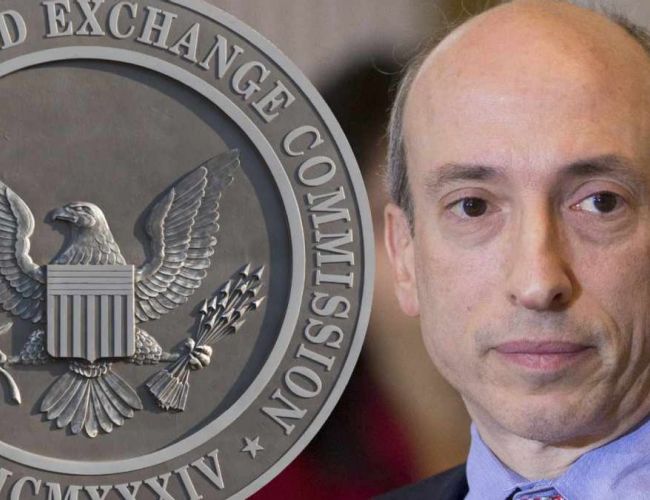The SEC (Securities and Exchange Commission) is a regulatory agency in the United States responsible for overseeing the securities markets and enforcing securities laws. It’s critical for financial advisors whose clients intend to invest in cryptocurrencies to comprehend the rules. There are several legal edge cases in the cryptocurrency industry, and advisers have a fiduciary duty to work in their client’s best interests, which includes doing everything within their power to shield them from financial loss and legal issues. By being informed about regulatory dangers, clients can avoid cryptocurrency practices that become frauds, scams, or market manipulation.
Comprehending rules can also enhance the caliber of investment evaluation a financial advisor offers cryptocurrency customers. A framework provided by regulations can be used to assess the reliability of their financial portfolio and the possible returns on digital assets. Significant legal and regulatory issues make it impossible for a cryptocurrency product or business to operate profitably over the long run and have a steady monetary value.
Regulatory Oversight
The SEC determines whether cryptocurrencies and initial coin offerings (ICOs) fall under securities laws. This classification impacts how these assets can be traded and offered to the public. Given the unpredictability and anonymity of cryptocurrencies, the SEC may adopt one of two regulation strategies:
First, Section 15 of the Securities Exchange Act of 1934 might require all cryptocurrency exchanges to register as broker-dealers. Broker-dealers can move their clients’ assets to other parties and help with transactions.
Second, it might mandate that all cryptocurrency exchanges register under Section 6 of the Act as national securities exchanges. By requiring registration, the SEC can monitor the Bitcoin market and protect consumers and investors.
Registration provides detailed information about the offering, issuer, and other relevant details, which can create a modest barrier for cryptocurrency exchanges and give the SEC greater oversight. As a result, by enforcing registration, the SEC improves transparency and enables investors to make informed decisions.
Because registration procedures impose higher entrance hurdles, there may be a more minor trade-off with ICOs. However, the SEC can strike a compromise between protecting investors’ interests and enabling the Bitcoin market to function thanks to both registration alternatives.
Investor Protection
Their regulations aim to protect investors from fraud and ensure markets operate fairly. First and foremost, investor safety is emphasized. The SEC aggressively investigates and prosecutes fraudulent activity in the cryptocurrency industry. By doing this, SEC enforcement hopes to protect investors, serve as a deterrent against nefarious acts, and stop fraud in the relatively nascent and frequently fraudulent cryptocurrency marketplaces. Furthermore, by putting securities rules on crypto marketplaces, the SEC guarantees that businesses provide complete and accurate information, enabling investors to make well-informed judgments.
Due to cryptocurrency markets’ anonymity and unregulated nature, which makes them vulnerable to price manipulation, SEC monitoring is crucial in preventing manipulative tactics and fostering fair prices. Monitoring for anomalous activity further enhances the integrity of these markets and encourages investor confidence.
Constant Observation and Modification
Considering how quickly the crypto world changes, the SEC is nevertheless on guard. It continually evaluates fresh innovations and modifies its regulatory strategy as necessary. The SEC’s regulations can legitimize cryptocurrency businesses by creating a legal framework that may draw in traditional investors and institutions and encourage wider use.
Furthermore, implementing legislation related to counterterrorism financing (CTF) and anti-money laundering (AML) helps allay public worries about possible cryptocurrency misuse.
Clarity in regulations
Establishing boundaries between cryptocurrency assets and traditional securities clarifies the situation for investors and business owners and promotes a more open and predictable market. The SEC enforces compliance guidelines that help crypto companies navigate well-known rules and minimize legal uncertainty.
Exchange Control
Due to cryptocurrencies’ global and borderless character, cross-border cooperation is required. Exchanges that list securities tokens must register with the SEC as national securities exchanges. These platforms run safely and within the law thanks to this regulatory control.
Moreover, cross-border enforcement difficulties can be addressed by international cooperation, which will lead to a more uniform legal framework for cryptocurrencies.
Market Confidence
Clear SEC guidelines can enhance market confidence and legitimacy for institutional investors and the general public.
Price manipulation: Since bitcoin markets are unregulated and anonymous, manipulative tactics are possible. SEC monitoring may be able to stop such abuses and ensure fair prices.
Market surveillance: Monitoring odd activity on cryptocurrency exchanges could help preserve investor confidence and market integrity.
Acceptance and Validity
Lawful structure: Getting regulated by the SEC might give bitcoin businesses legitimacy and draw in more traditional investors and institutions, which could result in broader adoption.
Innovation and competition: SEC enforcement might foster these two factors, critical to the long-term viability and expansion of the cryptocurrency industry, by leveling the playing field.
Money laundering and terrorism funding: The SEC and other agencies might address two main public concerns over cryptocurrencies by enforcing anti-money laundering (AML) and counterterrorism finance (CTF) legislation.
Regulatory Explicitness
Creating boundaries: The SEC’s participation may help establish the limits between conventional securities and cryptocurrency assets, giving investors and business owners much-needed clarity.
Compliance standards: By establishing compliance standards, cryptocurrency businesses can reduce legal uncertainty and adhere to well-known regulations.
Cross-border cooperation: Since cryptocurrencies are international in nature, international cooperation and enforcement may help address issues that authorities around the world face.
The Howey Test
According to American law, a financial arrangement that passes the Howey test can be classified as an investment contract and subject to regulatory regulations. The Howey test is now crucial to the SEC’s evaluation of different financial arrangements and products, such as initial coin offerings (ICOs) and cryptocurrencies.
The criteria for the test were established by the U.S. Supreme Court in 1946 in the case of SEC v. W.J. Howey Co. Since the Howey test determines whether regulations apply to specific businesses, it has become a crucial tool for anyone working in the financial sector, including the rapidly growing cryptocurrency space.
In summary, the SEC’s actions shape the regulatory environment for cryptocurrencies, impacting their acceptance, investor trust, and overall market development.
 cryptonews.net
cryptonews.net
